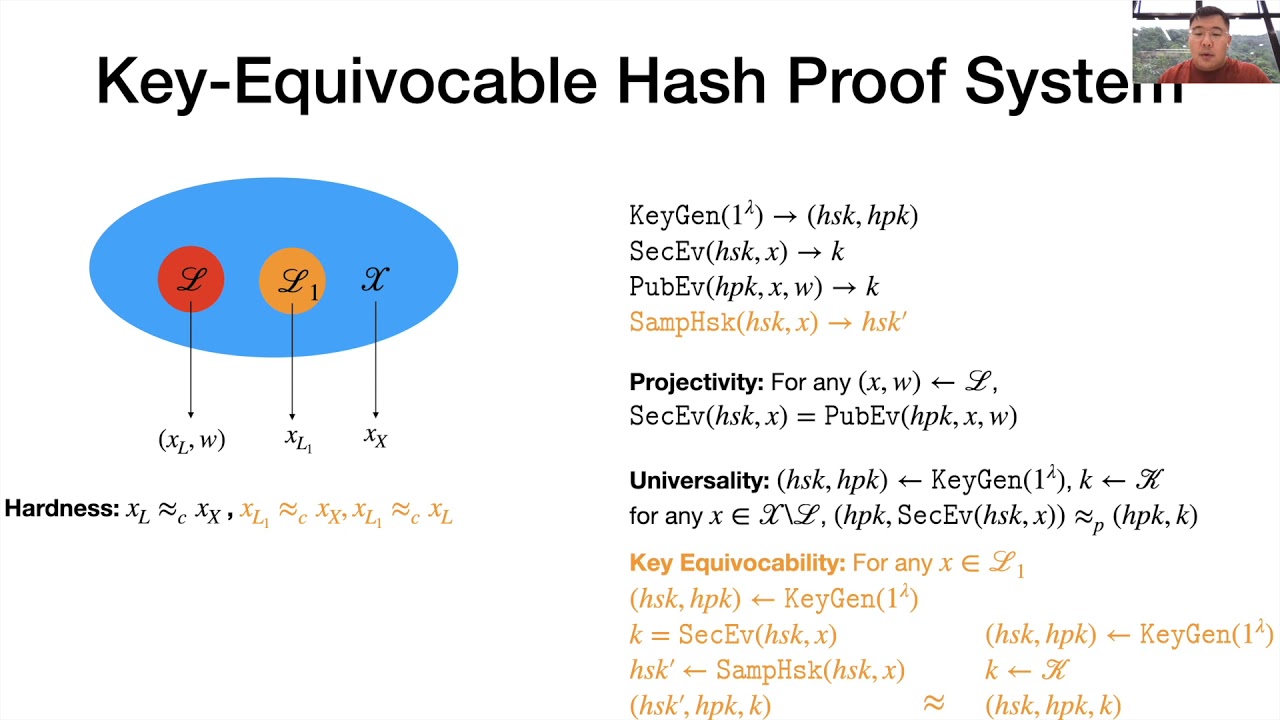Welcome to the resource topic for 2021/1268
Title:
Simulation-Based Bi-Selective Opening Security for Public Key Encryption
Authors: Junzuo Lai, Rupeng Yang, Zhengan Huang, Jian Weng
Abstract:Selective opening attacks (SOA) (for public-key encryption, PKE) concern such a multi-user scenario, where an adversary adaptively corrupts some fraction of the users to break into a subset of honestly created ciphertexts, and tries to learn the information on the messages of some unopened (but potentially related) ciphertexts. Until now, the notion of selective opening attacks is only considered in two settings: sender selective opening (SSO), where part of senders are corrupted and messages together with randomness for encryption are revealed; and receiver selective opening (RSO), where part of receivers are corrupted and messages together with secret keys for decryption are revealed. In this paper, we consider a more natural and general setting for selective opening security. In the setting, the adversary may adaptively corrupt part of senders and receivers \emph{simultaneously}, and get the plaintext messages together with internal randomness for encryption and secret keys for decryption, while it is hoped that messages of uncorrupted parties remain protected. We denote it as Bi-SO security since it is reminiscent of Bi-Deniability for PKE. We first formalize the requirement of Bi-SO security by the simulation-based (SIM) style, and prove that some practical PKE schemes achieve SIM-Bi-\text{SO}-CCA security in the random oracle model. Then, we suggest a weak model of Bi-SO security, denoted as SIM-wBi-\text{SO}-CCA security, and argue that it is still meaningful and useful. We propose a generic construction of PKE schemes that achieve SIM-wBi-\text{SO}-CCA security in the standard model and instantiate them from various standard assumptions. Our generic construction is built on a newly presented primitive, namely, universal$_{\kappa}$ hash proof system with key equivocability, which may be of independent interest.
ePrint: https://eprint.iacr.org/2021/1268
Talk: https://www.youtube.com/watch?v=jlFVyEWFqaM
See all topics related to this paper.
Feel free to post resources that are related to this paper below.
Example resources include: implementations, explanation materials, talks, slides, links to previous discussions on other websites.
For more information, see the rules for Resource Topics .
